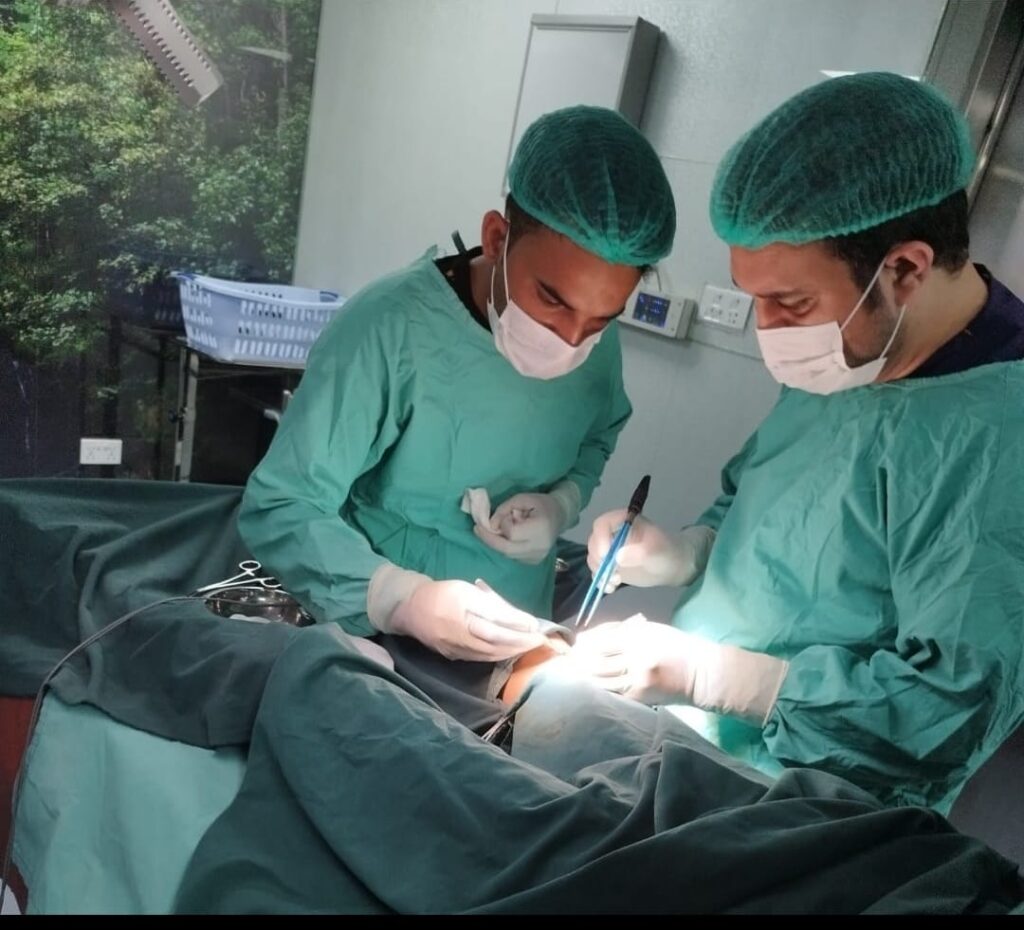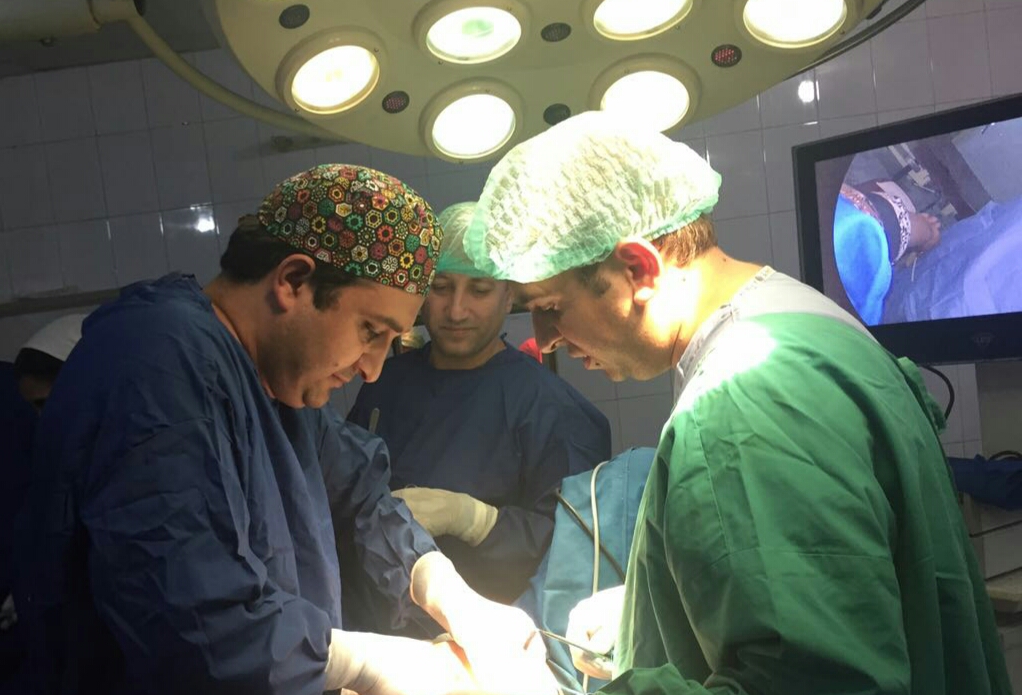- contact@laparoscopyadvice.com
- General Practice Hospital, G-9/2 Islamabad
- Mon - Fri: 10:00 am - 7:00 pm
Visiting Hours
| Mon - Fri: | 8:00 am - 8:00 pm |
| Saturday: | 9:00 am - 6:00 pm |
| Sunday: | 9:00 am - 6:00 pm |
Gallery Posts






| Mon - Fri: | 8:00 am - 8:00 pm |
| Saturday: | 9:00 am - 6:00 pm |
| Sunday: | 9:00 am - 6:00 pm |







Introduction
Ectopic pregnancy is a unique and potentially serious condition that requires careful attention and prompt medical intervention. This article aims to provide a comprehensive understanding of ectopic pregnancy, covering its definition, signs, symptoms, diagnosis, treatment options, and considerations for emotional and reproductive health.
Understanding Ectopic Pregnancy
Ectopic pregnancy occurs when a fertilized egg implants outside the uterus, most commonly in the fallopian tubes. This condition is not only a medical concern but also an emotional journey for individuals experiencing it.
Common Sites of Ectopic Implantation
While the majority of ectopic pregnancies occur in the fallopian tubes, they can also implant in other locations, such as the ovaries, cervix, or abdominal cavity.
Signs and Symptoms
Recognizing the signs and symptoms of ectopic pregnancy is crucial for early detection and intervention.



Differentiating from Normal Pregnancy Symptoms
Ectopic pregnancy symptoms, such as abdominal pain and vaginal bleeding, can overlap with normal pregnancy symptoms. Understanding the distinctions helps individuals seek medical attention when needed.
Diagnosis
Accurate diagnosis of ectopic pregnancy involves a combination of clinical evaluation and diagnostic procedures.
The Role of Ultrasound, Blood Tests, and Pelvic Exams
Ultrasound, blood tests (such as measuring hCG levels), and pelvic exams are instrumental in confirming the diagnosis and determining the location of the ectopic pregnancy.
Treatment Options
The management of ectopic pregnancy depends on factors such as the size of the ectopic mass, the location, and the overall health of the individual.
Considerations for Medical Treatment and Surgical Intervention
Options for managing ectopic pregnancy include medication to stop the growth of the pregnancy or surgical intervention to remove the ectopic mass. The choice depends on individual circumstances and medical advice.
Risk Factors and Prevention
Identifying risk factors for ectopic pregnancy allows individuals to be proactive in seeking medical advice and considering preventive measures.
Strategies for Preventing Ectopic Pregnancies
While not all ectopic pregnancies can be prevented, avoiding known risk factors and promptly addressing reproductive health issues may reduce the risk.
Emotional Impact
Ectopic pregnancy can have a profound emotional impact on individuals and couples.
The Importance of Support and Counseling
Recognizing the emotional challenges and seeking support and counseling are crucial aspects of navigating the emotional impact of ectopic pregnancy.
Complications and Long-Term Effects
Untreated ectopic pregnancies can lead to complications and have long-term effects on reproductive health.
Long-Term Effects on Reproductive Health
In some cases, the removal of the ectopic mass may impact fertility. Understanding these potential outcomes emphasizes the importance of seeking appropriate medical care.
Fertility Considerations
Ectopic pregnancy can affect fertility, and individuals may benefit from fertility counseling and family planning discussions.
Fertility Counseling and Family Planning After an Ectopic Pregnancy
Exploring fertility considerations and planning for future pregnancies after an ectopic pregnancy is essential for informed decision-making and emotional well-being.
Frequently Asked Questions (FAQs)
1. Can ectopic pregnancy be diagnosed early?
Yes, early diagnosis is possible through a combination of ultrasound, blood tests, and pelvic exams. Prompt medical attention is crucial for successful management.
2.Does ectopic pregnancy always cause severe pain?
While severe abdominal pain is a common symptom, not all individuals with ectopic pregnancy experience intense pain. Other symptoms, such as vaginal bleeding, should also be considered.
3. Can I have a healthy pregnancy after an ectopic pregnancy?
Yes, many individuals go on to have healthy pregnancies after experiencing an ectopic pregnancy. Fertility considerations and medical advice play a key role in subsequent pregnancies.
4. What are the potential complications of untreated ectopic pregnancy?
Untreated ectopic pregnancies can lead to ruptured fallopian tubes, severe internal bleeding, and life-threatening complications. Timely intervention is essential.
5. Does having one ectopic pregnancy increase the risk of another?
While the risk may be slightly increased, many individuals with one ectopic pregnancy go on to have subsequent pregnancies without complications. Regular medical follow-ups and fertility discussions are advisable.
Conclusion
In conclusion, ectopic pregnancy is a complex and multifaceted condition that requires both medical and emotional considerations. Recognizing the signs, seeking prompt medical attention, and understanding the potential impacts on reproductive health are crucial aspects of navigating the journey of ectopic pregnancy. Encouraging awareness, proactive reproductive health measures, and seeking support contribute to informed decision-making and overall well-being.
| Mon - Fri: | 9:00 am - 7:00 pm |
| Saturday - Sunday: | Off |
Copyright 2023 Adil's Laparoscopy World | Powered by Dynaamx